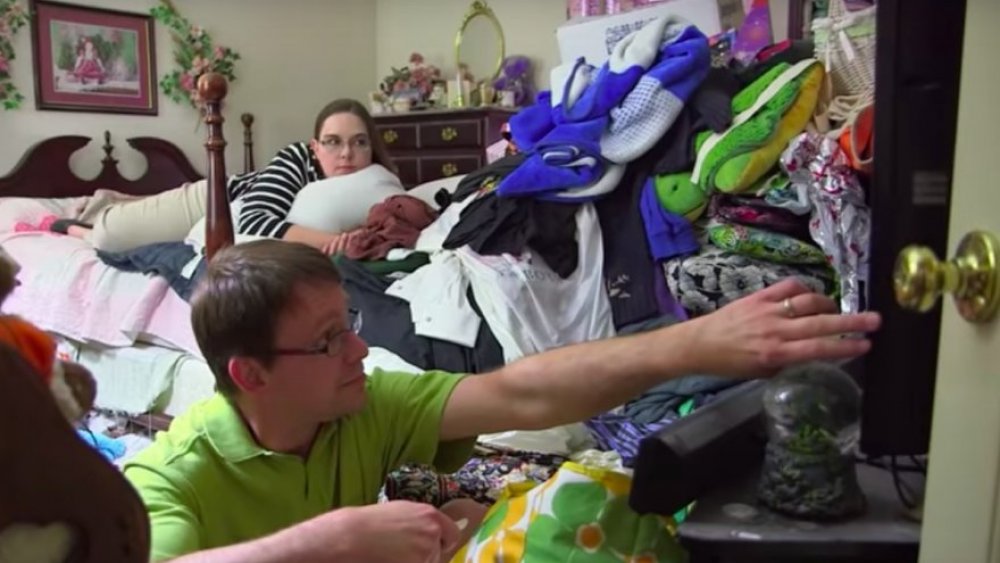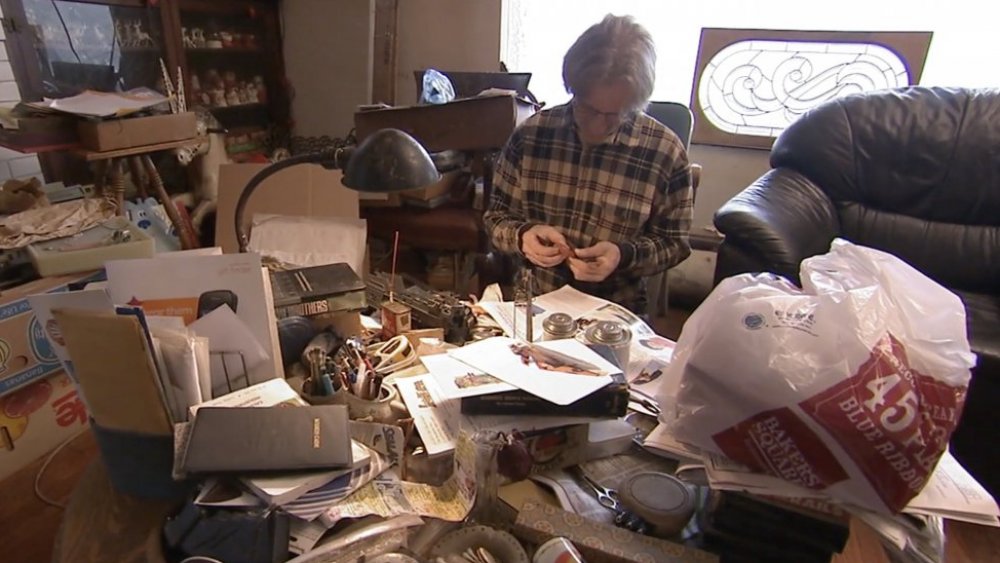Will There Be A Hoarders Season 11?
It's hard to believe, but Hoarders has been on our screens for more than a decade, originally debuting on A&E all the way back in 2009. The show has weathered many storms over the years, including cancellation, but remains a mainstay predominantly because it's so addictive and incredibly heartwarming. Following the lives of people with compulsive hoarding disorder as they try desperately to sort out their lives, and living spaces, Hoarders can be credited with raising awareness of hoarding as a genuine psychological condition, as noted by The Cinemaholic.
The Emmy-winning reality docuseries was the most watched premiere in A&E network history for adults aged 18 to 49 and is tied for first place in the 25 to 54 demographic. After being axed initially, it was quickly picked up by Lifetime, leading to Hoarders: Family Secrets, Hoarders, Then and Now, and Hoarders, Overload. The most recent, tenth season wrapped up in early 2019, leading fans to scramble for when to expect season 11.
Hoarders season 11 is up in the air
Although Premiere Date notes the show has yet to be renewed, this isn't unusual given the ongoing coronavirus pandemic, which has led to several reality shows being stalled. As The Cinemaholic advises, although the previous season debuted in March 2019, it was following a two-year hiatus. That means it's reasonable to assume it might be March 2021 before season 11 rolls around. Having said that, seasons eight and nine aired consecutively, so there might still be hope for it later on this year, once things are a bit more settled (that is, assuming anything has been filmed in the interim). Hoarders has been cancelled before, but there's no reason to panic just yet. OG cast-member Matt Paxton recently said goodbye to the show, but again this isn't necessarily a bad sign, as the show has survived in many different guises.
The set-up for the show is deceptively simple. The hoarder generally works with a psychiatrist to treat their mental health, while professional cleaners deal with the mess spilling out of their homes (these scenes form the most satisfying chunks of the show itself, of course). The focus is on mental health and well-being, rather than gawking at somebody who's clearly struggling, and the feel-good element comes predominantly via the empathy generated in viewers watching at home, particularly as the subjects gain control of their issues. Each traditional episode ends with an update on how the subject is doing now, which provides further clarity.

